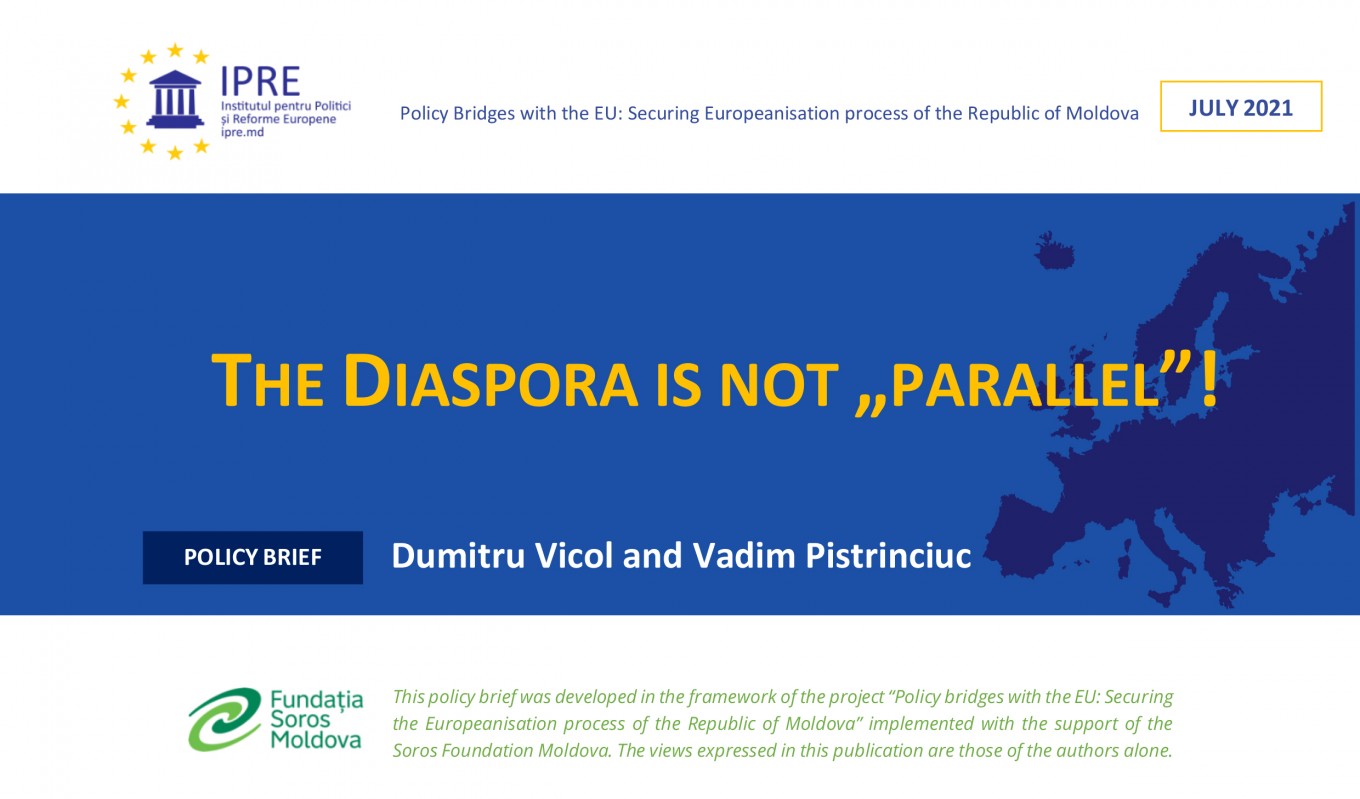POLICY BRIEF: THE DIASPORA IS NOT „PARALLEL”!

Authors: Dumitru Vicol and Vadim Pistrinciuc
EXECUTIVE SUMMARY
“Diaspora” is probably one of the most pronounced words in recent years in the Republic of Moldova. The massive participation of the diaspora during the last elections suggests that the state authorities need to increase the support for the national programs dedicated to the diaspora and strengthen the dialogue. The determining factor of labor migration is the economic one, due to the low level of wages and insufficient income in rural areas. If emigration intentions persist, it will put constant pressure on the pension system. It is expected that in 2030 the number of pension beneficiaries could exceed the number of employees.
Although no precise official data are available on the precise number of people who emigrated from the Republic of Moldova, as a result of the analysis and aggregation of official data, but also research conducted in recent years, we can estimate that the number of those who left the country is at least 900,000. But it could even reach 1.3 million people. It is also estimated that most of those who have already left are abroad with their families. Today, a quarter of households in the country receive remittances, and within households that are dependent on remittances, transfers accounted for 52.4% of disposable income for 2018. The proportion of remittances in disposable income decreased from 19% in 2014 to 13% in 2020.
National authorities should focus more on attracting savings from the diaspora, which could be estimated at least at $800 million a year. In this regard, it is important to expand national programs such as ‘PARE 1+1’ and ‘DAR 1+3’. Another opportunity is the development of the eco-system of crowdfunding and investment in enterprises. The savings of those abroad could be deposited in state securities, which would create additional income for a potential return. The authors also recommend the reanimation of Diaspora Excellence Groups, in order successfully implement the national sustainable development goals. New effective solutions and better collaboration between national authorities are needed for a more accurate estimation of citizens’ mobility. The authorities must continue international cooperation in concluding new bilateral social security agreements with the countries where a large number of Moldovan migrants reside, including Canada and the United Kingdom. Last but not least, the coordination of programs to attract savings and activities related to the diaspora requires a more elaborated status for the Diaspora Relations Bureau. The new statute should provide financial and administrative autonomy, and the board of directors should be made up of at least half of the members of the diaspora.
This policy brief was developed in the framework of the project “Policy bridges with the EU: Securing the Europeanisation process of the Republic of Moldova” implemented with the support of the Soros Foundation Moldova. The views expressed in this publication are those of the authors alone.
Fullscreen Mode
